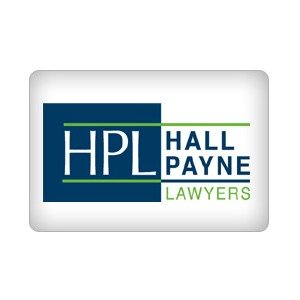Best Arrests & Searches Lawyers in Brisbane
Share your needs with us, get contacted by law firms.
Free. Takes 2 min.
List of the best lawyers in Brisbane, Australia
About Arrests & Searches Law in Brisbane, Australia
The law on arrests and searches in Brisbane, Australia, pivots around the principles of respect for individual freedom, privacy, and protection of human rights. Authorities such as the police have certain powers to execute arrests and conduct searches, but these powers are subject to specific rules of conduct to ensure their correct usage. Understanding your rights can play a significant role in protecting yourself from any potential misuse of these powers.
Why You May Need a Lawyer
There are many situations where you might need legal help. If you have been arrested or your premises have been searched, a lawyer can guide you in understanding your rights and the legality of the procedures conducted. If you believe the police have acted outside of their powers or breached their obligations, a lawyer can assist in taking appropriate action. Additionally, a lawyer can aid in providing advice or representation if you are questioned or charged with an offence as a result of an arrest or search.
Local Laws Overview
Local laws relating to arrests and searches are found largely within the Police Powers and Responsibilities Act 2000 in Queensland. This Act outlines the powers and responsibilities of police, including how and under what circumstances arrests and searches can be conducted. Other relevant legislation includes the Bail Act 1980, that outlines conditions under which someone may be granted or refused bail, and the Criminal Code Act 1899 that defines the criminal offences in Queensland.
Frequently Asked Questions
1. Can the police search me without a warrant?
Yes, police can search you without a warrant under certain conditions including suspicion of carrying illegal drugs or weapons, or if you are in a public place declared under the 'Safe Night Out' legislation.
2. What are my rights upon arrest?
Upon arrest, you have the right to remain silent, except for providing personal details. You also have the right to contact a friend, relative, and legal representative. The police must treat you with dignity and respect throughout their dealings with you.
3. Can I refuse to answer police questions?
Aside from disclosing your correct name and address, you are not obligated to answer any other questions without your legal representative present.
4. Can the police search my property without my consent?
Under certain circumstances, such as urgency or when they hold reasonable grounds to suspect that evidence may be destroyed, police can search your property without consent.
5. What can I do if I believe my rights have been violated?
If you believe your rights have been violated, you should seek immediate legal advice. You may also file a complaint with the Queensland Police Service or the Crime and Corruption Commission.
Additional Resources
The Queensland Law Society, Legal Aid Queensland, and the Queensland Human Rights Commission all provide valuable information and assistance regarding arrests and searches. Community legal centres are also accessible for legal advocacy and assistance.
Next Steps
If you require legal assistance, seek advice from a legal professional immediately. A lawyer can help you understand your rights, advise you on how to approach your situation, and provide legal representation where necessary. Remember, it's important to act in a timely manner, particularly if you're facing formal charges or believe your rights have been violated.
Lawzana helps you find the best lawyers and law firms in Brisbane through a curated and pre-screened list of qualified legal professionals. Our platform offers rankings and detailed profiles of attorneys and law firms, allowing you to compare based on practice areas, including Arrests & Searches, experience, and client feedback.
Each profile includes a description of the firm's areas of practice, client reviews, team members and partners, year of establishment, spoken languages, office locations, contact information, social media presence, and any published articles or resources. Most firms on our platform speak English and are experienced in both local and international legal matters.
Get a quote from top-rated law firms in Brisbane, Australia — quickly, securely, and without unnecessary hassle.
Disclaimer:
The information provided on this page is for general informational purposes only and does not constitute legal advice. While we strive to ensure the accuracy and relevance of the content, legal information may change over time, and interpretations of the law can vary. You should always consult with a qualified legal professional for advice specific to your situation.
We disclaim all liability for actions taken or not taken based on the content of this page. If you believe any information is incorrect or outdated, please contact us, and we will review and update it where appropriate.













